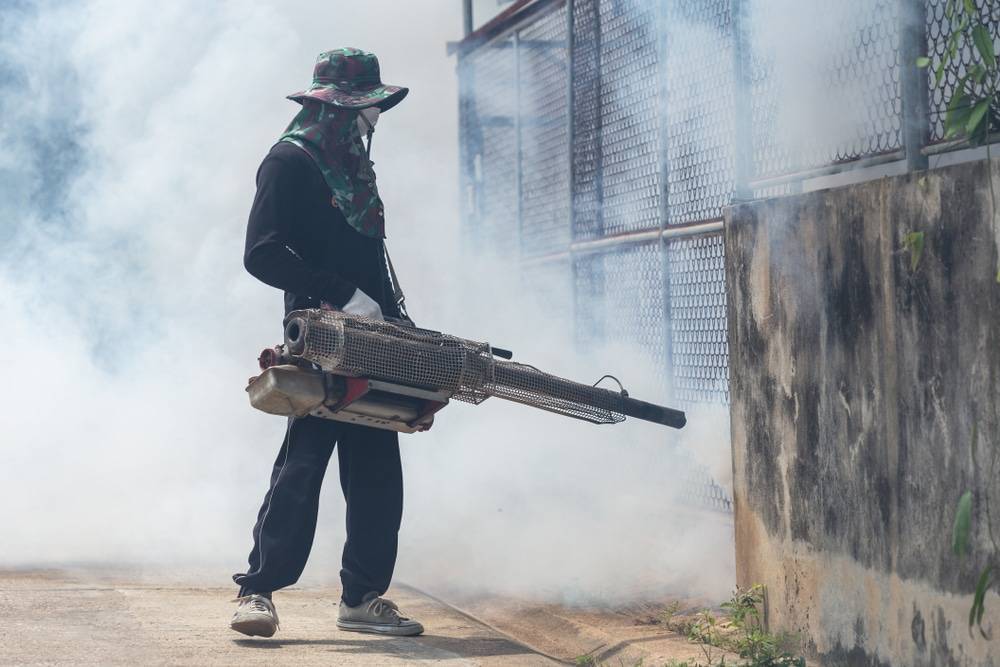The Malaysian Auditor General’s 2022 report saw a lack of positive results in dengue control. Meanwhile, it also noted scientific evidence for fogging remains weak.
The report, tabled in the Parliament last year under the Ministry of Health (MOH), demonstrated a lack of results in mitigating the effects of dengue in Malaysia despite nationwide insecticide fogging and the Wolbachia mosquito project.
Dengue In Malaysia
The MOH recorded 123,133 cases of dengue nationwide in the year 2023, a significant 86% rise in cases compared to 66,102 cases in 2022. Dengue-related deaths were up by 79% to 100 deaths in 2023 compared to 56 deaths in 2022. The Auditor General’s report saw a decrease in dengue cases in 17 different regions with the Wolbachia mosquito project. However, the report states that the project has yet to demonstrate significant results.
Lack Of Scientific Evidence Against Dengue
The National Strategic Plan on Dengue Prevention and Control 2022-2026 reported that dengue prevention and control costs exceeded RM167 million over the 5 years. Dr. Lokman Hakim Sulaiman, the deputy vice chancellor of research at International Medical University (IMU) stated that there is no robust evidence that fogging is effective in curbing the breeding of Aedes mosquitoes.
According to Dr. Lokman, fogging only kills adult mosquitoes at the point of fogging. New adult mosquitoes are bound to emerge quickly unless fogging is accompanied by a reduction in breeding spots.
Eradication Of Mosquito Breeding Sites For Better Impact
Dr Lokman felt funds should be allocated for better diagnostic equipment, treatment and an effective vaccine to offer better protection against all dengue serotypes. He stated that eradicating breeding sites would be more effective than fogging alone. Dr Lokman also mentioned that local authorities have an active role in maintaining/improving the environment. They should enable the public to get rid of these breeding grounds.
All About Wolbachia
Wolbachia is a common bacteria found in insects but typically not in Aedes mosquitoes. Studies have proven that the bacteria provides resistance to the dengue virus. Thus, it prevents the effective transmission of the virus from mosquitoes to human hosts. Wolbachia-infected Aedes mosquitoes are made in the laboratory and released in hotspots, hoping that they will make their way into the current Aedes mosquito population.
Emeritus Professor Dr Lam Sai Kit, a research consultant at the University of Malaya, felt that the number of dengue cases has yet to show a significant reduction despite vigorous vector control programmes being carried out nationwide. He also stated that dengue prevention is an issue that affects communities worldwide and that the need for an effective vaccine will continue to rise with urbanisation, population growth, climate change and poor sanitation.
Call To Action
The Malaysian public needs to be more aware of the dangers of dengue. While early detection and treatment usually lead to complete recovery, many have lost their lives to dengue. This is because the symptoms tend to be vague or appear when it’s too late. Communities should play their collective roles in keeping the environment clean and reducing breeding grounds for Aedes mosquitoes, as there is a limit to how much the government can do without everyone pitching in at the ground level. Eradicating dengue will require effective, long-term strategies and the cooperation of all Malaysians.

